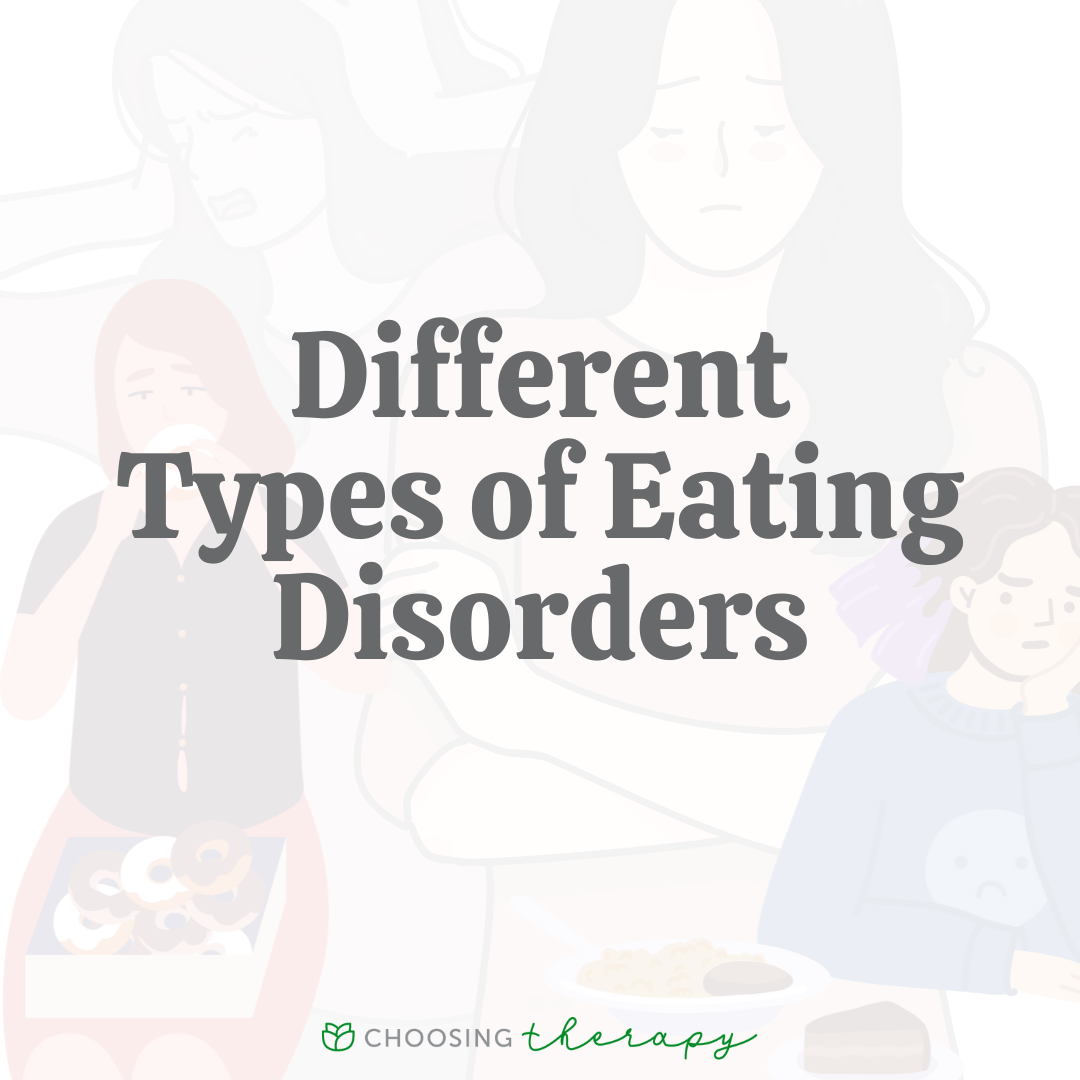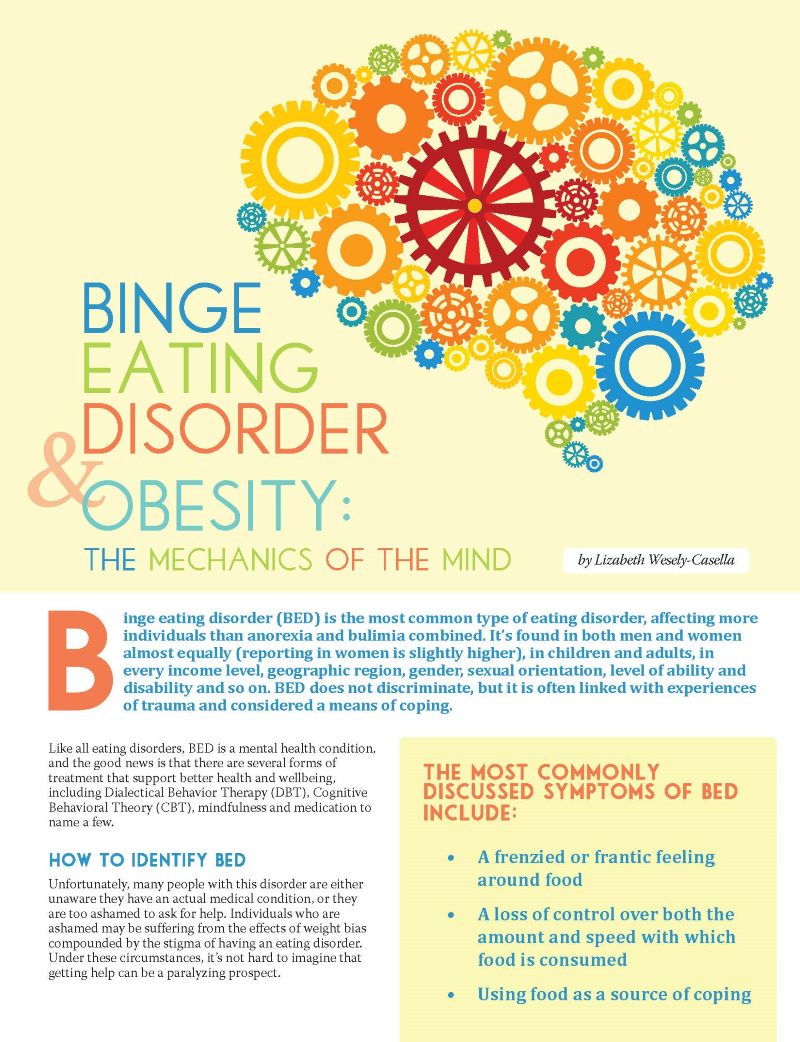The Ultimate Guide To Eating Disorder Recovery
Wiki Article
The Greatest Guide To Eating Disorder Recovery
Table of ContentsThe 20-Second Trick For Eating Disorder RecoveryWhat Does Eating Disorder Recovery Mean?All About Eating Disorder RecoveryThe Best Guide To Eating Disorder RecoveryEating Disorder Recovery Can Be Fun For Anyone

While numerous people make a point to be conscious of the active ingredients as well as sourcing of their food, orthorexia can become harmful to the person's health and wellness. Ultimately, certain foods or whole teams are eliminated from the individual's diet; they might additionally begin to consume over the active ingredients in their foods, investing hrs each day preparation dishes.
Food components could also end up being the person's just subject of conversation. Orthorexia is additionally a common co-occurring condition linked with OCD.
Excitement About Eating Disorder Recovery
With this condition, an individual will strictly prevent specific foods to the hinderance of their wellness - eating disorder recovery. Unlike orthorexia, however, the avoidance of specific foods isn't driven by concepts of the food's healthiness or pureness, but rather by a severe hostility to the food's flavor, appearance, or odor (although worries concerning wasting or food poisoning might also be existing).In time, a growing number of foods come to be illogical, leading to an incredibly minimal combination of appropriate foods. Formerly referred to as careful eating disorder, ARFID usually begins in youth as well as considerably worsens over time. It's fairly common for kids to be "particular eaters" as well as every person has preferences for what they consume, however if it becomes uncontrollable as well as damaging to a person's health, it necessitates a check-in with an eating problem therapy professional.
Like orthorexia, an unfavorable or distorted body image is not necessarily a reason of the disorder. ARFID is usually treated using talk treatment and also cognitive re-training such as Cognitive Behavior Modification (CBT). Unlike the majority of eating disorders which typically initially existing during adolescence, rumination problem is most common in infancy and also early childhood years, although it can linger into the adult years.
Eating Disorder Recovery for Beginners
Generally, they do not experience tension or disgust when regurgitating, neither do they appear to make an effort to throw up (as seen in bulimia nervosa). Rumination problem is usually a response to an irrational fear of illness brought on by consuming, although its reasons are much less well-understood than various other eating conditions.

Orthorexia is a type of eating condition, still unrecognized in the DSM, where an individual comes to be stressed with "healthy eating." While lots of people emphasize to be knowledgeable about the ingredients as well as sourcing of their food, orthorexia can come to be damaging to the individual's health and wellness. Orthorexia creates people to recognize particular food or food groups as "proper," "healthy and balanced," or "pure." At some point, specific foods or entire groups are removed from the person's diet plan; they could additionally start to consume over the ingredients in their foods, spending hrs daily preparation meals.
The Ultimate Guide To Eating Disorder Recovery

With this condition, an individual will strictly prevent certain foods to the hinderance of their health. Unlike orthorexia, nonetheless, the evasion of certain foods isn't driven by concepts of the food's healthfulness or pureness, yet rather by a serious hostility to the food's flavor, structure, or odor (although problems about spoilage or gastrointestinal disorder may also exist).
With time, an increasing number of foods come to be untenable, causing an extremely limited scheme of appropriate foods. Previously known as careful eating condition, ARFID usually begins in childhood and gradually aggravates with time. It's relatively common for kids to be "particular eaters" and also every person has choices wherefore they consume, yet if it becomes compulsive and harmful to a person's health and wellness, it calls for a check-in with an eating condition treatment expert.
All about Eating Disorder Recovery
Additionally like orthorexia, an unfavorable or altered body picture is not necessarily a reason for the problem. ARFID is typically treated utilizing talk therapy and also cognitive retraining such as Cognitive Behavior Treatment (CBT). Unlike many eating disorders which usually first existing during adolescence, rumination condition is most typical in infancy and also early youth, although it can persist right into the adult years.Generally, they do not experience stress and anxiety or disgust when spewing, neither do they appear to make an effort to throw up (as seen in bulimia nervosa). Rumination condition is typically a reaction to an illogical anxiety of health problem caused by consuming, although its causes are much less well-understood than various other eating conditions.
Rumination disorder is detailed in the DSM-V. One of the most hazardous forms of consuming disorder, ED-DMT1 (colloquially called diabulimia), occurs when a person with type-1 diabetic issues purposefully skips their insulin dose to slim down. Diabulimia Discover More Here is detailed as one of the lots of undefined eating conditions under the catchall term OSFED (Various other Specified Feeding r Eating Condition).
Report this wiki page